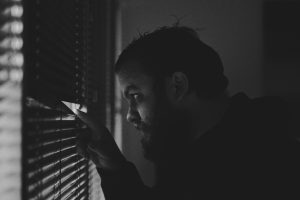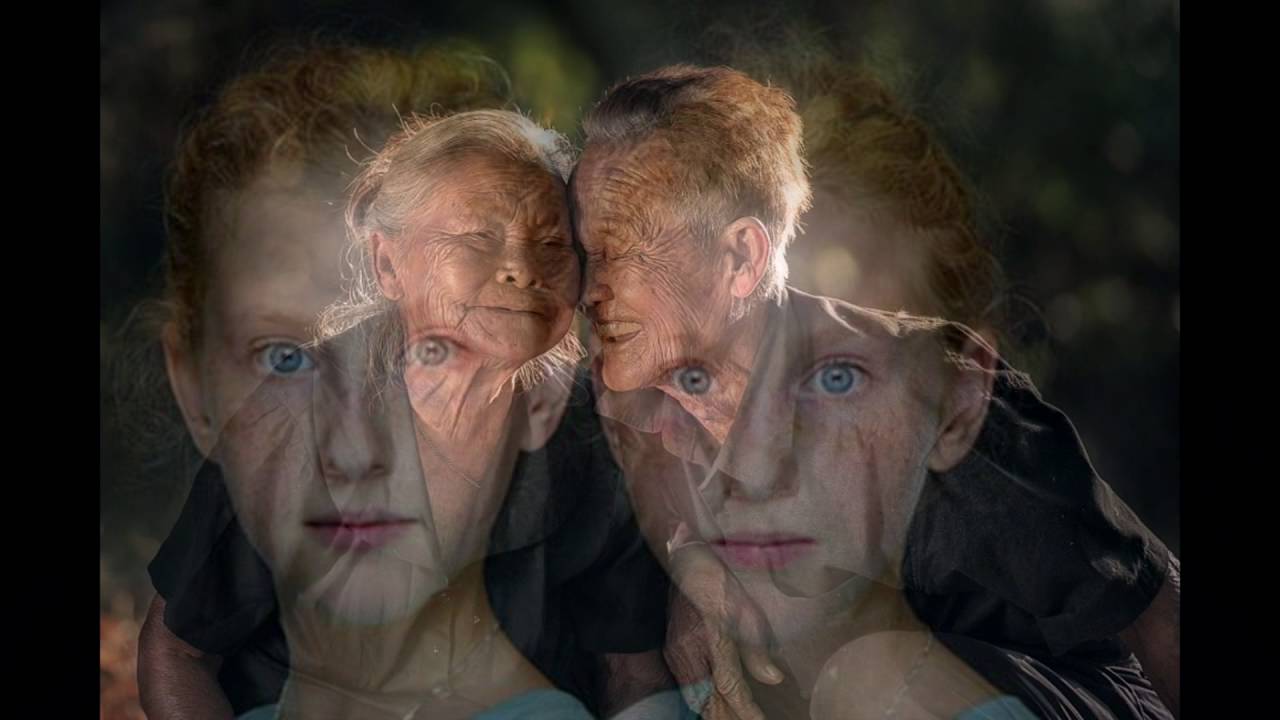Strangers no more
![]()
This month, we’ll look at some sermons and inspirational pieces. As Mennonite congregants, we take a try at preaching once in a while. It gives our pastors a week to breathe and catch up on all the others things the job requires, and it is enjoyable to hear each other’s voices. The following is a ‘sermon’ I offered one Sunday.
____________
Galatians 3: 28 There is no longer Jew or Greek, there is no longer slave or free, there is no longer male and female; for all of you are one in Christ Jesus.
As I thought about this passage, I started to imagine separate boxes in which we congregate with like-minded folk to feel comfortable and to keep others out.

Photo by Clem Onojeghuo on Unsplash
They have their boxes, and we have ours. We peek out from our boxes, judging the colors, ribbons, and conditions of the other boxes. As we compare, we build up our defenses and petrify our beliefs. We see what they appear to be and judge those inside the boxes by their outsides. Through these incomplete judgments, we create stereotypes.


Photos by Robert Hickerson and Chris Nguyen on Unsplash
Because our passage in Galatians addresses people in the ancient Middle East, I’ve decided to address one of the problems that remains there today. I’ll stay away from the present Syrian crisis and talk about Israel and Palestine, an ongoing struggle since the 194os.
One of the stereotypes of today’s Israeli-Palestinian conflict is that of Zionist Jews running roughshod over Palestinians who must live on the other side of the wall. But we cannot hope to understand this situation without moving closer to the individuals involved.
Israeli story

Recently, my husband saw the movie A Tale of Love and Darkness. Directed by Natalie Portman, it is based on a memoir by Amos Oz who is portrayed as the son in the family. The family’s name is Klausner, part of the European intellectual and monied elite, which has afforded them a plethora of belongings, concerts, books, and expectations.
Then, the family has to escape Europe in WW II and relocate to Israel.
Oz’s story is about personal life. Of course, it includes the partitioning in 1948, but also the depression of a once secure mother who now must live what she sees as a barren life in a barren country.
It includes a perfectly human incident of the woman’s husband, a writer of long, boring tomes whose books have been sitting on book sellers’ shelves forever. But one day, all the books have been bought! The writer is thrilled at his new found popularity, not realizing that his friend, a writer who does sell lots of books, has bought them all.
The book and movie show individual dramas, beyond stereotypes, cut from the whole cloth of big events.
Palestinian story

What about Palestinians? Don’t they all live behind the wall, in Arab clothing and raging resentment? Or aren’t they all living martyrs who work tirelessly for human rights?
I ran across an interview with filmmaker Maysaloun Hamoud. She does not like being typecast.
The interviewer says, “We meet at a cafe near her home in the seaside port of Jaffa, next to Tel Aviv. She’s hugging her pet Siberian Husky.” What?
“The Israelis say, you don’t look Arab or Palestinian,” she says, rolling her eyes. “Huh? If I wear a dress or outfit that [doesn’t look] religious, I cannot be a Palestinian? I have to be, like, exactly how you design me?”
Hamoud is in her thirties, wearing a long skirt, tank top and sunglasses. The title of her acclaimed and controversial film Bar Bahar—or In Between in English—is tattooed on her arm.
Her movie is controversial, and certain Palestinian groups have boycotted it because the women are portrayed as not pure. Other Palestinians have welcomed the film as an indictment of male chauvinism disguised as protection of women.
The child of Palestinian communists from the Arab village of Deir Hanna in the Galilee, Hamoud was born in Budapest, Hungary, and grew up in Beersheba, Israel. She is among the 20 percent of Israeli citizens who are Palestinians.
____________
The Israeli and Palestinian examples open boxes. Once we move our focus from groups to individuals, our minds begin to open. The boxes that contain separate groupings start to dissolve and we see each person. Prejudice, which is pre-judgment, cannot live in that atmosphere.
How wonderful!
God dances.
But it’s not all butterflies and flowers.

Photo by Vincent van Zalinge
We may be stubborn about our points of view. It is difficult to listen with open ears, and more difficult (much more!) to change our minds. And we must face that there are certain things that we will not change our minds about, nor will our neighbors.
We see paradoxes in each human being. One person may be a hard driven, impatient business woman who spends her Saturday mornings cooking for an orphanage. Another might be a pediatrician who spends his free time buying exotic guns and dreaming of killing the big five. And still another may be the minister who wrote a beautiful piece this year in the Mennonite World Review, asking for forgiveness for saying bad things about LGBTQ people, but was still unable to stop lumping them together with lust, pornography, and divorce.
What we have to face is that we may dislike what a person thinks or does, but at least, without the box, we will not see him or her as simply the member of another box. We will begin the sometimes happy, other times uncomfortable journey of getting to know the other.
An NPR interview with Joan Williams, who wrote the book White Working Class, emphasizes the creation of the TV show All in the Family, with Archie Bunker and Meat Head, as one of the pivotal contributors to our dysfunctional class divisions today. Sure, it was comedy, but suddenly, a man’s hard work for the betterment of his family wasn’t enough. The working man was unfavorably compared to his immature but educated son-in-law. The sit-com depicted the aftermath of a time in which a great number of young men tried to get into college and stay there, partly because of those early Vietnam War deferments. Suddenly, there was a much larger group of educated youth than educated parents, and the rift between them was dug deep.
You may ask, but what about today’s angry, white working class and their prejudices toward people of color? Their violence, their ignorance. It’s intolerable.
Oops, I just fell back into my group’s box, stereotyping. I shouted from the rim at those ‘shallow’ people, and ducked down fast.

Photo by Mikhail Vasilyev on Unsplash
Even as we strive to live with other tribes on this earth, we must look at individuals if we are to understand them. The only way out of our boxes is through individual communication.
In the Israeli movie, the pre-teen, Hebrew-speaking son meets a pre-teen Palestinian girl who speaks Arabic. They have studied each other’s languages in school, and each marvels that they can understand each other—while their parents cannot (and perhaps don’t want to.)
____________
Change takes time. We must begin to trust the young to take the lead, to interact, to begin to break down barriers through friendships and commitments.
One evening at the Intercommunity Justice and Peace Center in Cincinnati, where whites and African Americans can talk about race, the adults were going on and on. One man was particularly in love with his own voice. (Sigh.) I wanted to know what the few high school students who had shown up that night thought. I said to them, ‘Look, we’re over. YOU have to decide how all of this is going to go. What do you think?’ They were reluctant to speak, but after a while, one young man did seem willing to contemplate aloud the issues at hand and he made good, interesting points. They need to think, and we need to listen, and at times advise. They need to be told of their importance to the world, so they will make decisions that might help us all. They must step up.

Photo by Alexis Brown
I don’t know if the kids above attended a church, but youth who do attend churches, synagogues, and mosques that emphasize service may know so much about the events on the world stage and feel such a heavy responsibility to DO SOMETHING that they clam up.
These serious young adults must narrow their daily focus in order to be effective, so that they will not lose heart—because the problems are so overwhelming. They will decide careers, with their individual faiths in mind. They will decide what to do with their free time, with faith in mind, and they will commit to having open hearts about social and economic issues.
![]()
But they must learn to forgive themselves for not changing the whole, entire world. They will do some things to better it. They will try to be kind and loving to the others who inhabit this planet, ideally without losing their sense of self.
The disassembling of the well-built boxes that house our separate groups is difficult, but Maya Angelou’s poem Human Family gives us a lift. There is hope if we can find the courage to reach out and the humility to listen.
Posted by Tracy Dupre, all rights to Maya Angelou
____________
NOTE: For further exploration of personal engagement, read Michael A. King’s column in the latest Mennonite World Review: Much More to Love.
____________
I welcome your comments: gretaholtwriter.com/blog.
{Thank you to my niece, Addie Liechty, for taking the picture that is this blog’s featured image. Her blog is: https://addieswriting.wordpress.com.}
Best wishes and have a good week.
Greta

A wonderful reminder of an important truth.
Thanks, Judy. I’m always hoping for the courage to reach out, but it doesn’t come naturally.